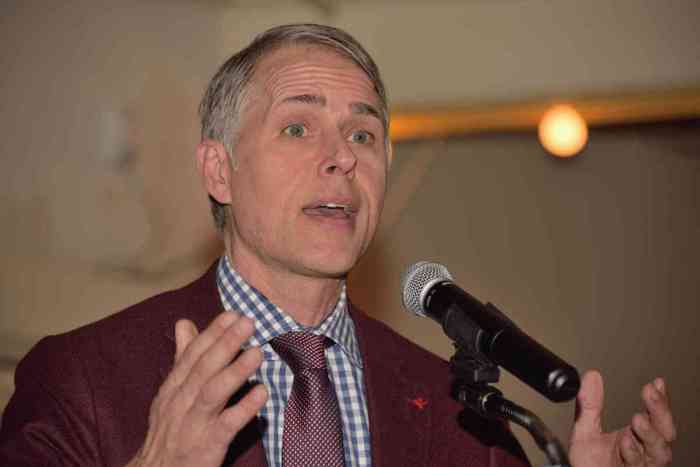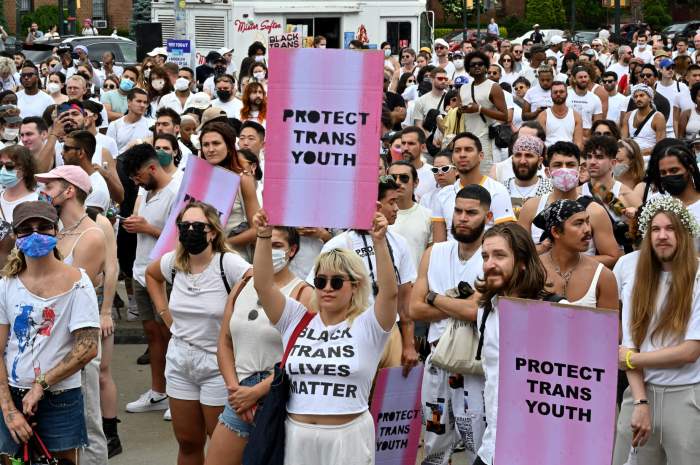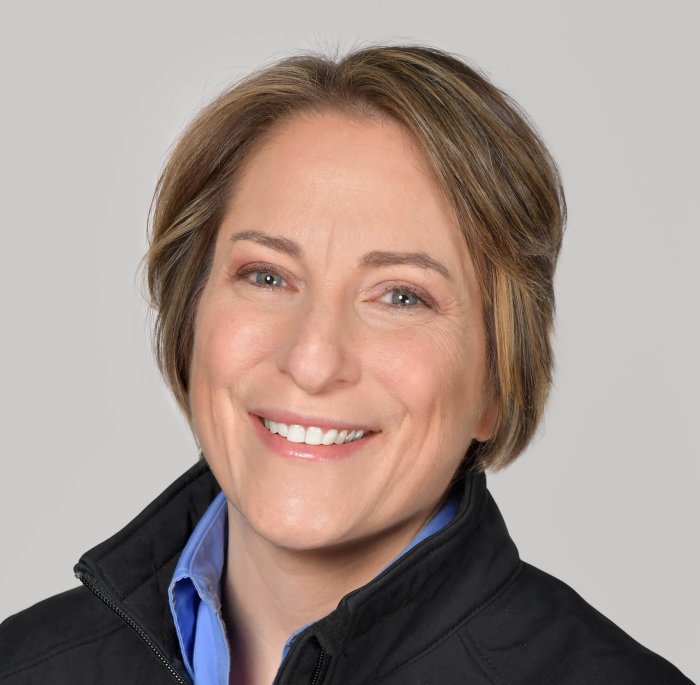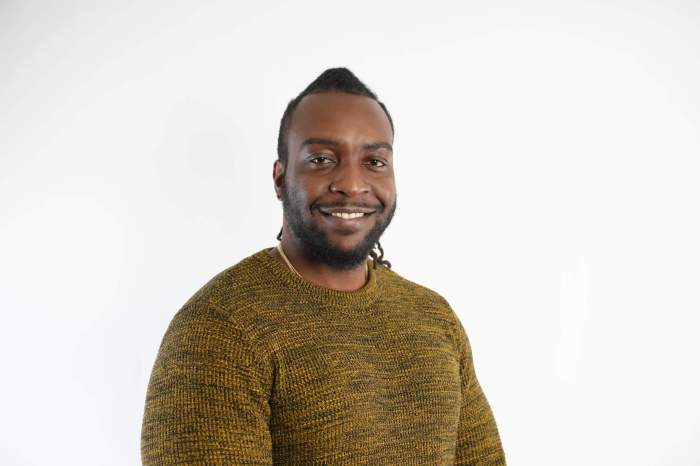BY YOAV SIVAN | At the end of the two-hour town hall meeting at the LGBT Community Center, nobody looked particularly content. No party was recognized as victorious; little news awaited breaking; no obvious sound bites emerged to shape future discourse. After two time extensions, whoever wanted to speak had spoken, and whoever remained of the 100-odd participants at the outset seemed tired, hungry, and anxious to go home. But the debate achieved its purpose.
The commotion in the LGBT community started when Michael Lucas, the gay porn mogul, protested the Center’s decision to make space available to an event labeling Israel as an apartheid state. The Center responded by canceling the room reservation and all future access by the event’s sponsoring group, Siegebusters, much to the consternation of many. Thus, on a mid-march Sunday afternoon, the community convened to debate the matter.
As a gay Israeli journalist now working in New York, I had to be there — and I’m glad I went, as I was taught a worthy lesson. No, I didn’t learn anything about the validity of comparing Israel to South Africa; rather, I witnessed — and marveled at — a staple of US democracy.
The LGBT community debated in the grand American tradition. The affair was inflamed by the quintessential hot potato of politics — you cannot say “Israel” without irritating someone — but the room chose to leave the insurmountable controversy aside and focus instead on a constructive review of decision-making by the Center’s leadership and a forward-looking demand for rules to prescribe decisions in similar cases.
If this does not sound glamorous, that’s because it is indeed technical, even dull. Participants deliberated seriously, efficiently, and enthusiastically with a clear shared sense of purpose and general respect for rules. Even though the third-floor meeting hall bulged with the most opinionated group imaginable, representing every hue in our politically colorful community, the language of politics — American-style — centered the people around their points of agreement.
That achievement stood out in particularly sharp contrast with another meeting that took place in town two evenings before. In the basement of Judson Memorial Church on Washington Square, I crowded together with some 200 enthusiasts to listen to a panel — headlined by Berkeley professor and feminist queer theorist Judith Butler — convened to mark the end of Israel Apartheid Week, an annual collection of events worldwide protesting the Jewish state’s treatment of Palestinians. The debate at Judson was passionate and sentimental, and also replete with academic jargon. The room offered no space for understatement.
The speakers castigated Israel and named names. They screened a picture of Michael Lucas, their nemesis, and introduced him dismissively by reference to his nine-incher — something, in my opinion, worthy of universal appreciation. Butler spent perhaps half her time defending her right, as a Jew, to criticize Israel, knocking down allegations she is guilty of anti-Semitism. I was relieved to see that Israel still unifies American Jewry. What is more Jewish than porn-magnate Michael Lucas and queer theorist Judith Butler exercising their Jewish identity by squabbling over what a Jew can and cannot say about the Jewish state?
In contrast, at the Center’s meeting, masterly chaired by journalist and activist Ann Northrop, labels were off-topic. Northrop said in an interview afterward that her “highest value is that people be able to talk openly with each other, and even if they disagree, they should respectfully listen.”
Remarkably, she achieved that. She modeled the debate on the New England town hall, she said, where the members of the community “come together every year to make decisions what to do.” Connecticut-born Northrop managed ACT UP meetings in the same fashion and believes our community dialogue must be true to “our constitutional values.”
How did she do it? My take: Through attentively yet quickly helping the room decide on procedural rules defining the agenda and the structure of debate. Expeditiously make decisions, respect the rules agreed upon, and maintain a healthy sense of priorities, and you have the wheels of democracy rolling.
The people decided almost everything — time frame (extensions to the debate were approved), the rules governing the press (no attributed quotes without the speaker’s agreement), and, of course, what to talk about. The goal of examining the Center’s guidelines on such controversies was adopted en masse. Northrop was transparent in stating her role: “My commitment as a facilitator is to help the room to do what the room wants to do as efficiently as possible.”
Consider one unremarkable exchange that shows how distractions were allowed but also ignored: One speaker maintained passionately that Israel is not an apartheid state — a statement that, of course, won applause, but also a remind from the audience, “No political statements!” Still, when the Israel defender concluded his remarks within the 90-second allotment, he earned a “thank you” from the chair. The next speaker brought the debate back on track: “Although I agree with the statement, I think we should focus on the guidelines.”
This left me speechless.
American public debate is so very different from what I am familiar with in Israel. To get an idea of the differences between Northrop’s town hall and its Israeli counterpart, the shtetl yeshiva (meeting in Hebrew), I’ll take you back to 1949, to the first meeting of the Israeli constitutional assembly (the Knesset). Philadelphia, as it were, in Jerusalem.
The exact details of how Israel, committed to forging a constitution in its declaration of independence, ended up being the world’s only democracy without a constitution are not essential here. Suffice it to say that the Israeli parliament, the Knesset, started its life empowered with a single objective — drafting a constitution for the Jewish state. After two thousands years of yearning for Jewish sovereignty and the power of national agency, some 100-odd delegates were sworn in and began their debate with alacrity.
Sadly, Ann Northrop was not there to teach them how to do it.
The delegates, having elected a speaker to chair the gathering, got distracted from their goal immediately. Did they discuss the structure of the future legislature? Perhaps the powers of the executive? What about the establishment of the Jewish religion or limitations on that?
No, these constitutional questions had to wait. The first debate in the yeshiva was about how many deputy speakers to appoint. Make no mistake. The question was not whom to appoint, and not even how many deputy speakers would serve in parliament once a constitution was forged. They got stuck with the trifle of how many deputy speakers to appoint for their own constitutional assembly, a question they could not even agree was legal to debate.
Those focused on reasoned deliberations were sidetracked by pompous colleagues, setting up the longest filibuster in world political history. Israel has yet to follow through on its commitment to enact a constitution.
What allows the genius of democracy to flower so readily in America but take on grotesque absurdity in the Israeli context?
At the Center’s town hall, there was agreement, through a quick series of votes, on agenda and framework for debate. Procedure is boring, but it clearly lays out how to handle heated, explosive issues. In the shtetl yeshiva, the delegates endlessly debated the rules of their own debate, immediately losing sight of the shared goal — even betraying their oath of office.
No surprise, they even failed to settle on a procedure for their own debate. During this “disgrace” (to quote one delegate), some cranky members demanded their right to take a break, throwing that issue into debate. Once a decision was made, it was immediately challenged, with the speaker begging them, in vain, to listen to each other before offering new proposals. A particular drag on the proceedings was the rule that every proposal offered would be subject to mandatory pro and con arguments mounted on the floor prior to a vote.
At the Community Center, the town hall was informal, yet the process agreed upon elevated its authority among participants. The debate had no formal record, and indeed no final resolution answering the question at hand was adopted. But when people of very different political stripes join in a debate and agree ad hoc on its framework, they affirm their shared community. Woody Allen is right: showing up is 90 percent of the work. In America, showing up to contribute to a controversial debate often strengthens institutions. Controversy becomes a vessel of democracy.
The Knesset’s yeshiva was formal, but the process eroded its authority. When delegates bypass their own rules and discard their decisions, what authority can they claim? In Israel, diversity of opinion weakens institutions and encourages fractions. Controversy threatens democracy.
The American town hall encourages participants to listen to each other. Those in charge, such as the Center’s executive director and board members, faced questions about their decision-making and answered in detail. Transparency becomes a vehicle for accountability, and a standard that the community can demand from those who hold the reins
Northrop played the traditional role that the press has achieved in American life — that of umpire, prioritizing the questions raised from the floor. “I’m the one who is trying to shape the questions and to ask them whether I have described their questions accurately, and then let them answer them,” she said of her interactions with the audience.
The yeshiva was a legal altercation, where facts mattered little. If anything, the delegates, wrangling about the legitimacy of their own decisions, repeatedly questioned the facts they established through their previous decisions. Unlike Center executive director Glennda Testone, who repeatedly answered questions about her conduct, the Israeli delegates paid little heed to David Ben Gurion, the premier. He spoke once, explaining to his colleagues what a decision is and clarifying that the assembly was free to make whatever decision it would like. A young Menachem Begin, a future premier, responded by insisting on the legal opinion of the justice minister — who became the gathering’s most sought-after official.
Ha’aretz, the Israeli newspaper of record, was too busy reporting about international objections to the Knesset meeting in the contested city of Jerusalem to report on the actual debate going on there.
The yeshiva failed. Two days later, the Knesset adopted the Law of Transition, something it was not authorized to do. Without a constitution, Israeli law is based on a contradiction — under its own terms, it is illegal.
Given the lack of underlying constitutional guidelines in Israel, the question of whether Israel is an apartheid state misses the point about Israeli politics. The Jewish state has no real policies; it governs itself on the basis of a continuing series of what are at best only ad hoc accommodations. If you insist on likening Israel to another country, forget about South Africa. A much better example is the United States — pre-1789 that is, when the newly independent states were joined by the wholly unworkable and ill-defined Articles of Confederation.

































